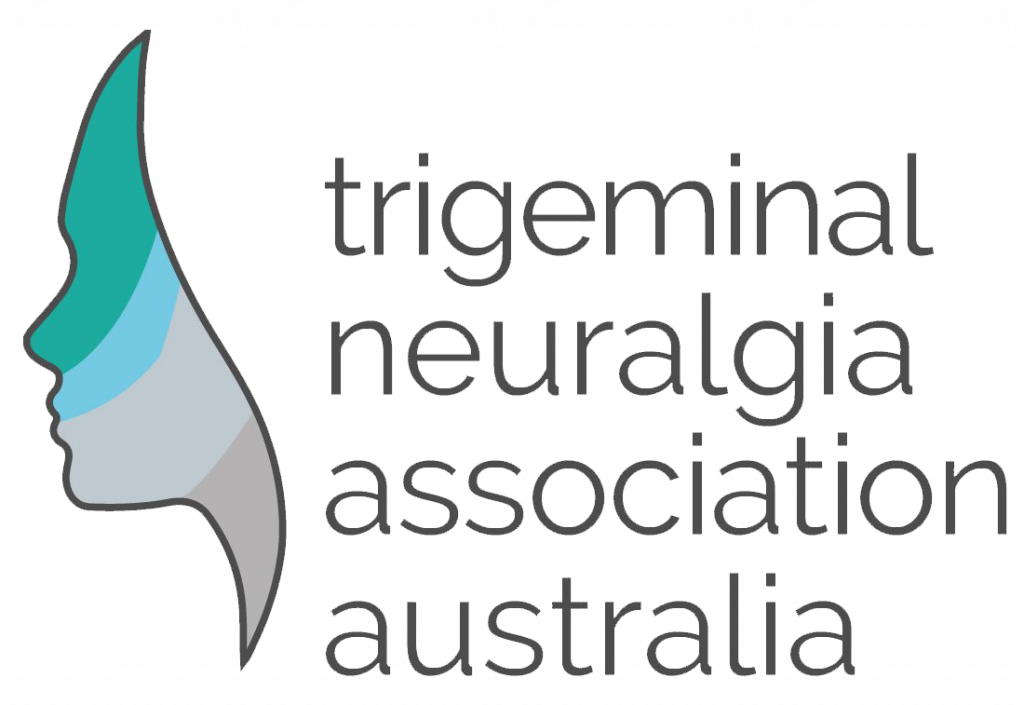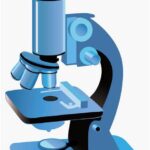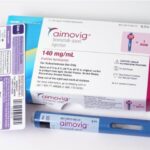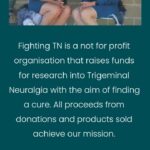Transcranial Magnetic Stimulation for Chronic Neuropathic Pain a research trial conducted by the University of California and San Francisco (UCFS)
a study on
Summary
- for people ages 18-80 (full criteria)
- at San Francisco, California
-
study started estimated completion
- by Julian C Motzkin, MD/PhDPrasad Shirvalkar, MD/PHD
Description
SUMMARY
Chronic neuropathic pain is defined as pain caused by a lesion or disease of the somatosensory nervous system. It is highly prevalent, debilitating, and challenging to treat. Current available treatments have low efficacy, high side effect burden, and are prone to misuse and dependence. Emerging evidence suggests that the transition from acute to chronic neuropathic pain is associated with reorganization of central brain circuits involved in pain processing. Repetitive transcranial magnetic stimulation (rTMS) is a promising alternative treatment that uses focused magnetic pulses to non-invasively modulate brain activity, a strategy that can potentially circumvent the adverse effects of available treatments for pain. RTMS is FDA-approved for the treatment of major depressive disorder, obsessive-compulsive disorder, and migraine, and has been shown to reduce pain scores when applied to the contralateral motor cortex (M1). However, available studies of rTMS for chronic neuropathic pain typically show variable and often short-lived benefits, and many aspects of optimal treatment remain unknown, including ideal rTMS stimulation parameters, duration of treatment, and relationship to the underlying pain etiology. Here the investigators propose to evaluate the efficacy of high frequency rTMS to M1, the region with most evidence of benefit in chronic neuropathic pain, and to use functional magnetic resonance imaging (fMRI) to identify alternative rTMS targets for participants that do not respond to stimulation at M1. The central aim is to evaluate the pain relieving efficacy of multi-session high-frequency M1 TMS for pain. In secondary exploratory analyses, the investigator propose to investigate patient characteristic that are predictive of responsive to M1 rTMS and identify viable alternative stimulation targets in non-responders to M1 rTMS.
OFFICIAL TITLE
A Pilot Trial of Longitudinal Repetitive Transcranial Magnetic Stimulation (rTMS) for Chronic Neuropathic Pain
DETAILS
The investigators will recruit 20 patients diagnosed with chronic neuropathic pain for a randomized, single-blind, 2-arm crossover pilot TMS treatment trial. Participants will be recruited outpatients from departments of neurosurgery, neurology, and pain medicine at UCSF; patients referred from other hospitals or clinics as candidates of this trial. Baseline screening, clinical interviews, behavioral testing, and recording of pain scores will be performed in either the UCSF Nancy Friend Pritzker Psychiatry Building, UCSF Pain Management Center, or UCSF Mount Zion Hospital prior to the first treatment session. Eligible patients will be randomized to one of two stimulation frequencies: high frequency (10Hz) excitatory vs low frequency (1Hz) inhibitory repetitive transcranial magnetic stimulation (rTMS). We will use clinical and research TMS devices that have been cleared by the FDA for treating obsessive compulsive disorder and refractory major depressive disorder (located in the Pritzker Building) through a collaboration with Dr. Andrew Krystal (Director of UCSF Interventional Psychiatry Program and Co-Director of the TMS & Neuromodulation Clinic) and Dr. Moses Lee (Director of OCD clinic) at UCSF.
Randomized patients will return for once daily rTMS sessions for 10 consecutive weekdays. On the first randomization visit, participants will record their current pain level using a visual analog scale (VAS), complete a variety of self-report scales (e.g., NIH PROMIS questionnaires, pain map, McGill Pain Questionnaire (MPQ), Pain Catastrophizing Scale (PCS), Pain Anxiety Symptom Scale (PASS), Beck Depression Inventory-II (BDI-II), WHO Disability Assessment Schedule (WHODAS), Patient Global Impression of Change (PGIC), and Pittsburgh Sleep Quality Index (PSQI)), and undergo a brain MRI session consisting of T1-weighted, T2-weighted, and diffusion tensor anatomical scans as well as functional MRI (fMRI) scans at rest and while rating spontaneous pain. Using single-pulse TMS, the investigators will estimate individual resting motor thresholds (RMT) of the affected extremity. Each treatment visit will consist of either: a series of thirty 10-Hz stimulations to the target brain regions at 90% RMT (each lasting 10 s with 50 s between stimulations, for a total of 3,000 pulses per visit) or thirty 1-Hz stimulations to the target brain regions at 90% RMT (total of 300 pulses per visit). Each treatment session will last ~30 min. Electromyography (EMG), heart rate and galvanic skin conductance will be recorded continuously throughout each session.
After completing the first 10 sessions, participants will have the option to receive additional stimulation with at either the same region or at a new target region, determined by each subject’s baseline MRI scan, at the same frequency with the same schedule as the first session of treatment. Non-responders (<35% improvement of VAS scores) and those with relapse post-treatment to within 35% pre-treatment baseline pain severity will cross over to the new target arm. Participants will be followed for 6-months to evaluate the duration of benefit with follow up assessments at 1 week, 1 month, and 6 months.
KEYWORDS
Chronic Neuropathic Pain, Post-Stroke Pain, Trigeminal Neuralgia, Nerve Injury, Spinal Cord Injuries, Pain, Postoperative, Complex Regional Pain Syndromes, Post-herpetic Neuralgia, Nerve Root Avulsion, Pain, Neuropathic Pain, TMS, Neuromodulation, Neuralgia, Reflex Sympathetic Dystrophy, Postherpetic Neuralgia, Radiculopathy, Postoperative Pain, Wounds and Injuries, High Frequency rTMS, Low Frequency rTMS
Eligibility YOU CAN JOIN IF…
Open to people ages 18-80
- Meets Criteria for Chronic Neuropathic Pain (NP):
- “Pain caused by a lesion or disease of the somatosensory nervous system
- Intractable pain longer than 6 months after pain onset
- Baseline VAS score 30-94-mm
- Currently prescribed pain medication for NP, history of prior medication trials without adequate pain control, or refused treatments for individual reasons
- Continuous pain in face and/or extremities
- Age 18-80
- Any gender and all ethnoracial categories
- Stable on chronic pain medications for 4 weeks prior to the study and agreeable to continue throughout the study. These medications include: Tricyclic antidepressants (e.g., nortriptyline, amitriptyline), SNRIs (e.g., duloxetine, venlafaxine), gabapentinoids (e.g., gabapentin, pregabalin), antiepileptics (e.g., valproic acid, carbamazepine, lamotrigine), and daily anti-inflammatories (e.g., meloxicam), among others (as determined by study physician at the time of screening). Note: Medications that are known to increase cortical excitability (e.g., buproprion, maprotiline, tricyclic antidepressants, classical antipsychotics) or to have an inhibitory effect on brain excitability (e.g., antiepileptics, benzodiazepines, and atypical antipsychotics), or any other medications with relative hazard for use in TMS will be allowed upon review of medications and/or motor threshold determination by TMS specialist.
- Participants may continue to take as-needed pain medications and record daily usage throughout the experiment
- Capacity to provide informed consent
- Ability to tolerate study procedures
- Successfully complete the screening forms without contraindications
YOU CAN’T JOIN IF…
- Neurologic: Dementia, Severe neurocognitive disorder (MoCA < 22), Severe aphasia, Seizure disorder, certain structural brain lesions (e.g., intracranial mass lesions, hydrocephalus, sequelae of meningitis), or complete paralysis at target site
- Psychiatric: DSM Axis I disorder, Suicidal thoughts, prior psychosurgery, prior ECT
- Procedural: prior rTMS within 1 year of consent, enrollment in other clinical trial in the past 6 months
- TMS contraindications: implanted device; presence of metal in the head, including eyes and ears (excluding dental implants); certain tics; medications or systemic illness that predispose seizure risk
- Participants with an unstable physical, systemic, or metabolic disorder (e.g., unstable hypertension, cardiac disease)
- Females who are pregnant or nursing
- Inability to complete the research study
Location
- UCSF Medical Center
accepting new patients
San FranciscoCalifornia94158United States
Lead Scientists
- Julian C Motzkin, MD/PhD
Fellow, Neurology, School of Medicine. Authored (or co-authored) 16 research publications - Prasad Shirvalkar, MD/PHD
Associate Professor, Anesthesia, School of Medicine. Authored (or co-authored) 33 research publications. Research interests: Pain Management · Neuromodulation · Deep Brain Stimulation · Headache · Neuropathic Pain · Spinal Cord Stimulation · Post Stroke Pain · Phantom Limb Pain
Details
- Status
- accepting new patients
- Start Date
- Completion Date
- (estimated)
- Sponsor
- University of California, San Francisco
- ID
- NCT05593237
- Study Type
- Interventional
- Participants
- Expecting 20 study participants
- Last Updated
Frequently Asked Questions






